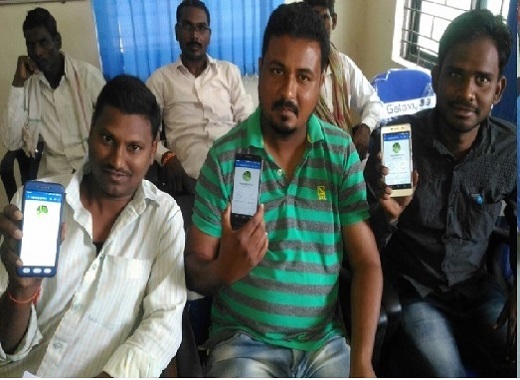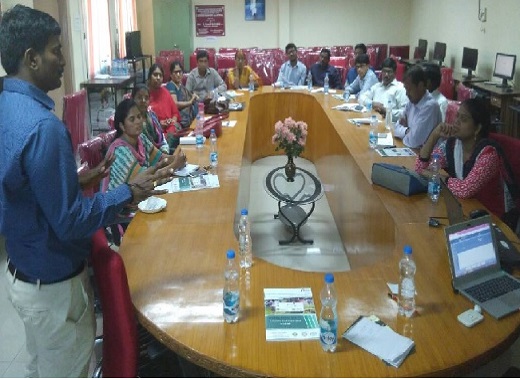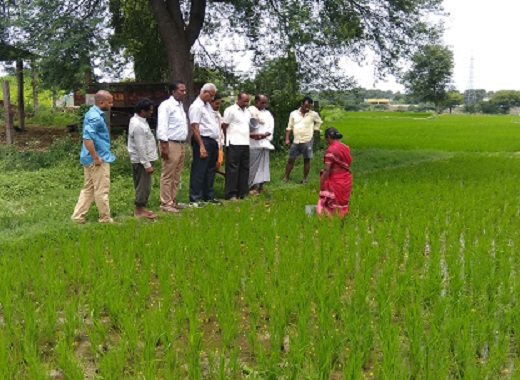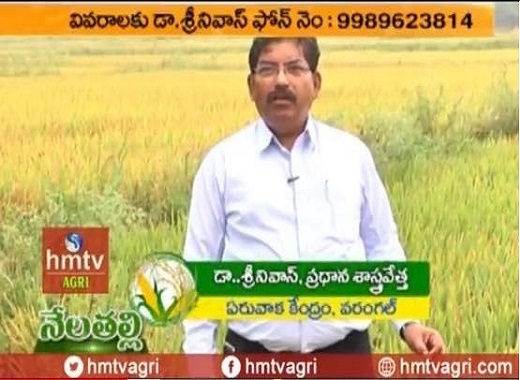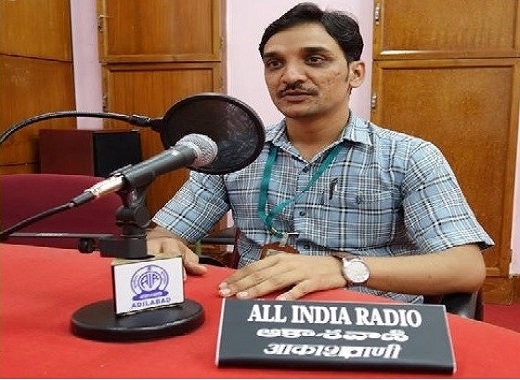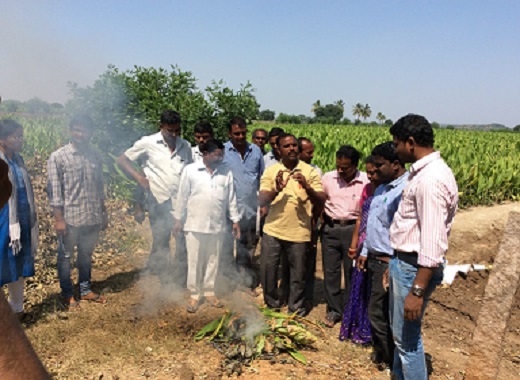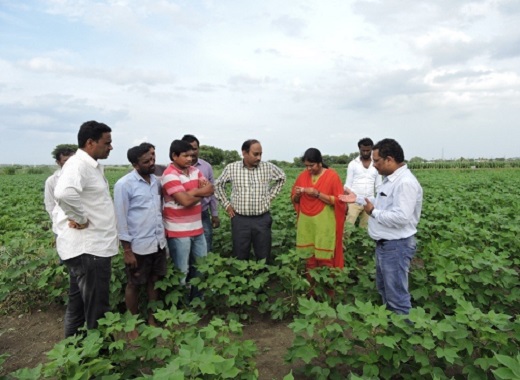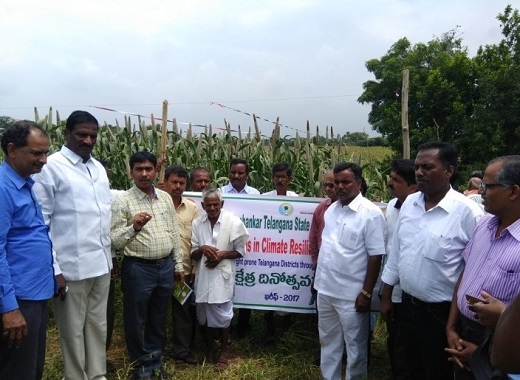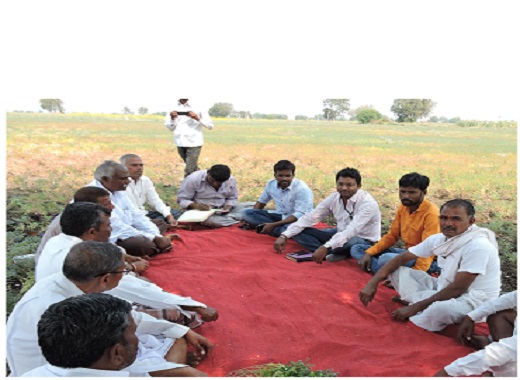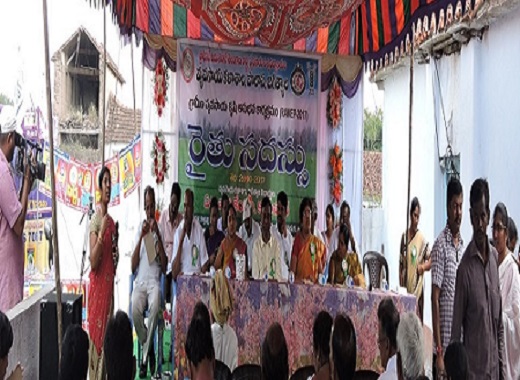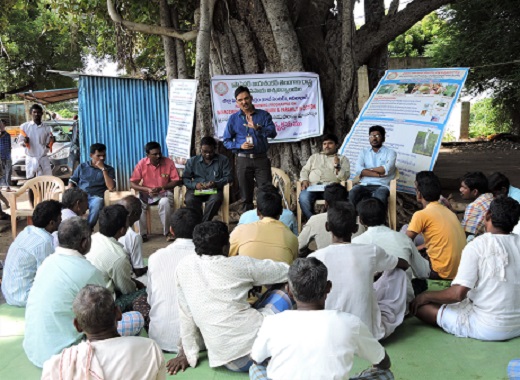DISTRICT AGRICULTURAL ADVISORY AND TRANSFER OF TECHNOLOGY CENTRES (DAATTCS)
Introduction
Believing in the concept that every research scientist should also be an extension worker in serving farmers, the University works in active association and close co-operation with farmers through frequent farmer-scientist interactions joint and diagnostic field visits enabled University scientists to earn good will confidence and credibility of farmers.
In order to reinforce and strengthen this mode of approach to solve many problems and complicated issues of farmers with ease, the University reorganized its extension activities by establishing the "District Agricultural Advisory and Transfer of Technology Centres" at all earstwhile 10 district head quarters in the united State, barring Hyderabad urban district during 1998. Each DAATT Centre has 3 scientists having specialized in Crop production, Crop protection and Transfer of technology.
The results are highly fruitful, rewarding and up to the expectations and already the centres have received accolades from many people in the farming community. The “District Agricultural Advisory and Transfer of Technology Centres” (DAATTCs) evolved as ambassadors of the Professor Jayashankar Telangana State Agricultural University to transfer the new improved and advanced technologies in Agriculture and to communicate the update information to farming community.
The DAATTCs are playing a pivotal role in popularizing new varieties / hybrids in important crops like rice, redgram, groundnut, bengalgram, maize, sorghum, castor, bajra and ragi etc. through minikits/FLDs and also creating awareness about practical adoptability of latest technologies in above crops.
The DAATTCs were established and started functioning vide Proc.No.18930/Extn.I(1)/98, dt:2-11-1998 from 5-12-1998 in the premises of Agriculture Market Committees of respective districts.
Mandate
- To assess and refine the technologies generated by the research scientists and their suitability to different farming situations.
- To assess the potentials of the district by developing database in order to exploit district resources and develop action plans in cooperation with line departments.
- To conduct field diagnostic visits, identify the field problems and provide scientific solutions.
- To organize kisan melas in coordination with line departments.
- To extend scientific expertise to the line departments in conduct of training programmes to officials, farmers and input agencies.
- To establish linkages with research institutes and other district units.
- To assist and implement the RAWE programme and ABE programme for Agriculture, Home Science and Agribusiness students, respectively.
- To maintain a useful Information Centre.
- To supply need based scientific/popular information to the line departments on enterprises for their printing/multiplication and distribution to the farmers.
- To coordinate with All India Radio, Television and Print Media for transmission of needed agricultural information in the district.
- To implement any other extension programme that may be taken by the University, from time to time, in coordination with the line departments.
- DAATT Centre is an independent unit with senior member as Coordinator. The center is under the overall technical and administrative control of Associate Director of Research of the zone concerned who is in turn responsible to Director of Extension on extension activities of each district centre in his jurisdiction.
